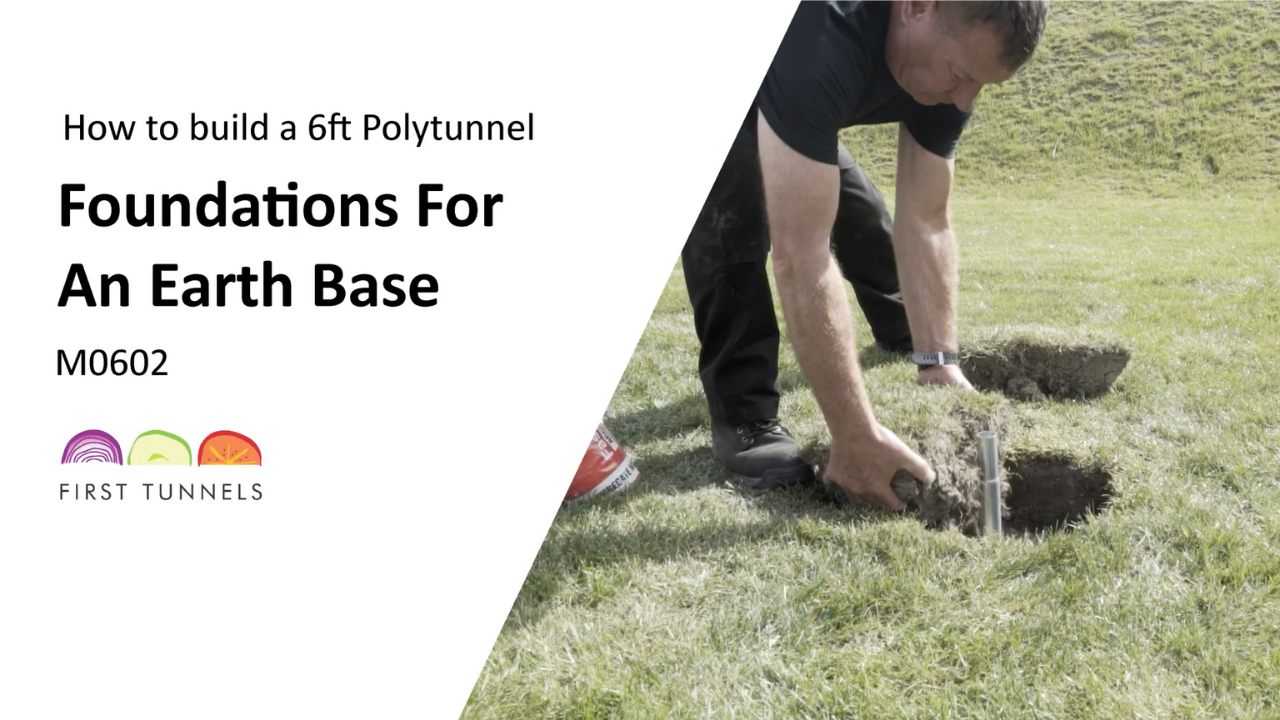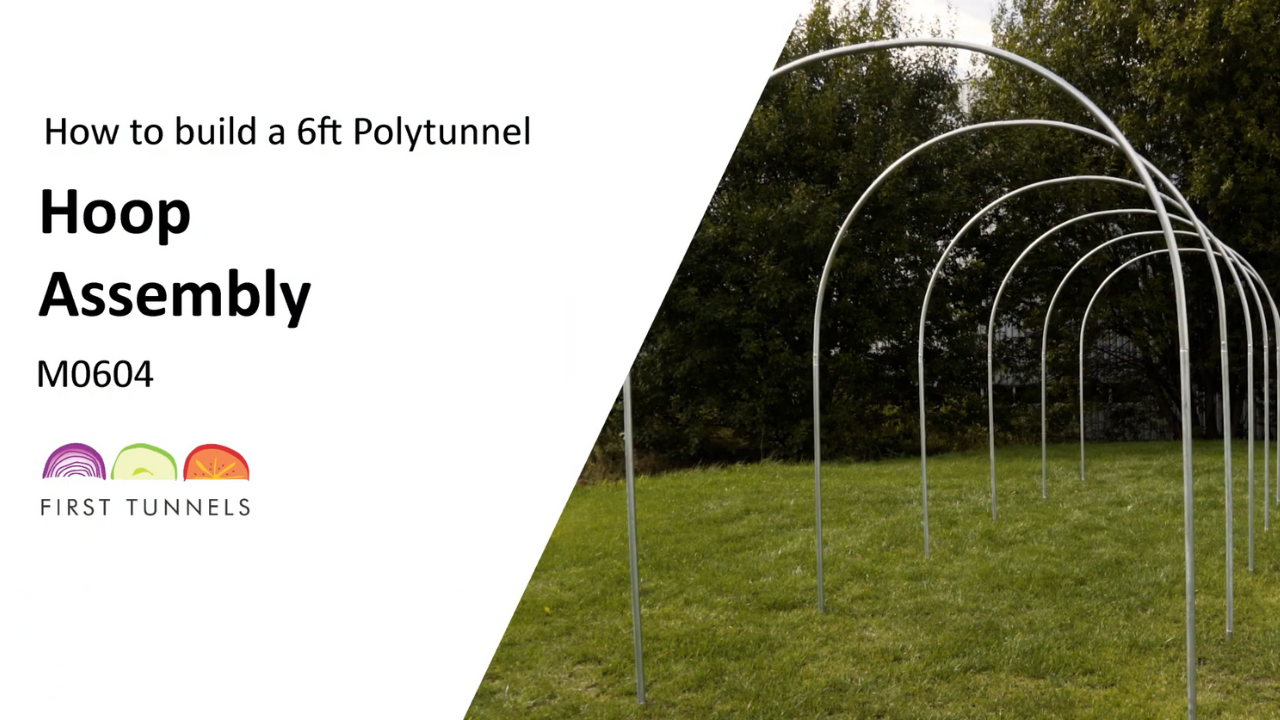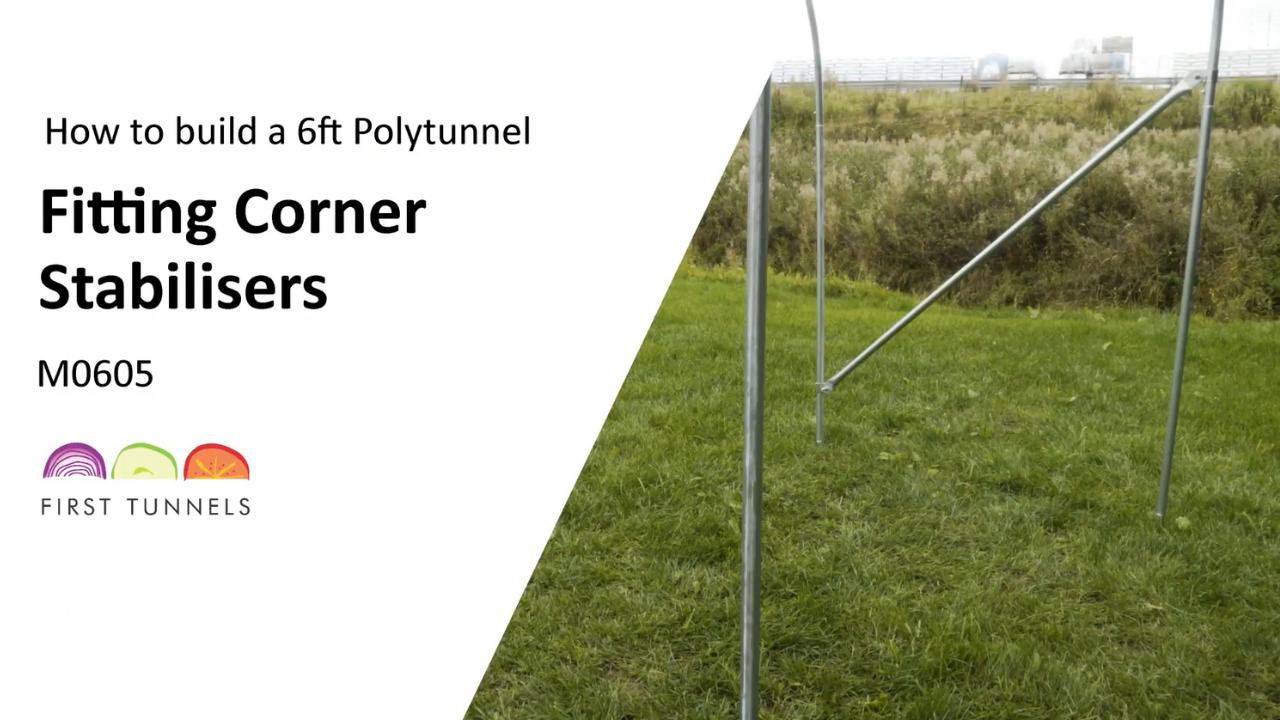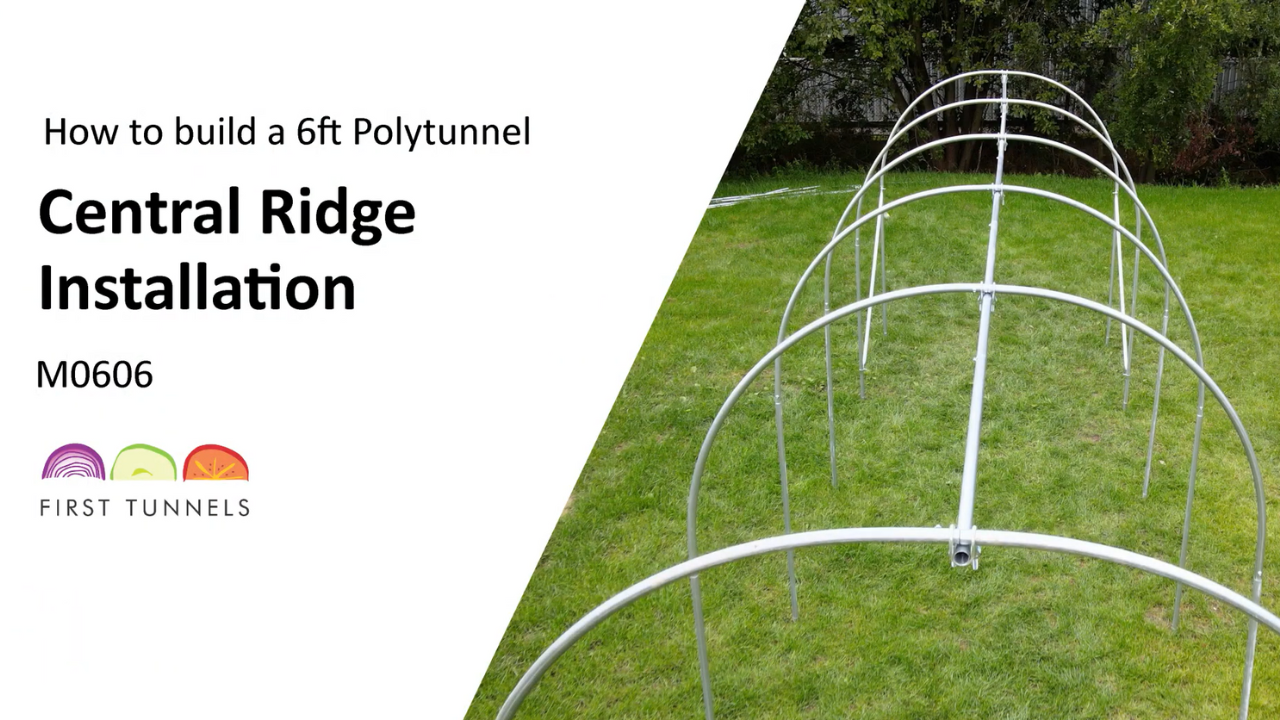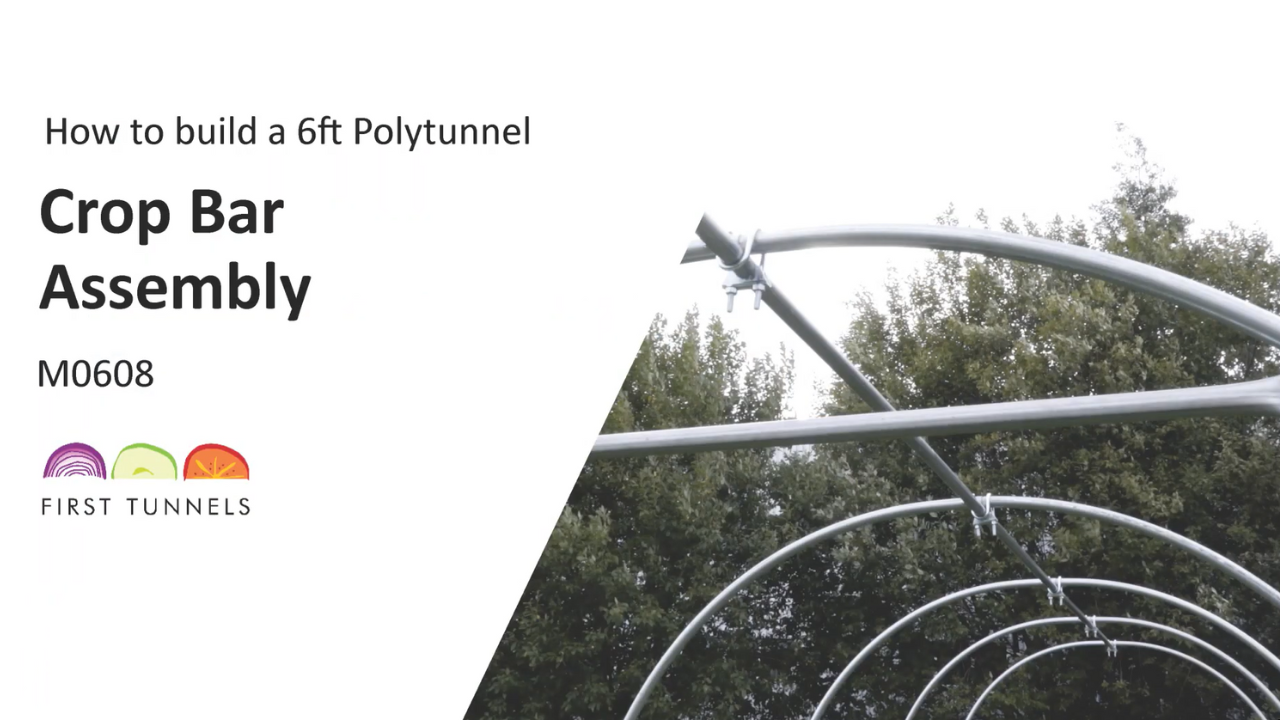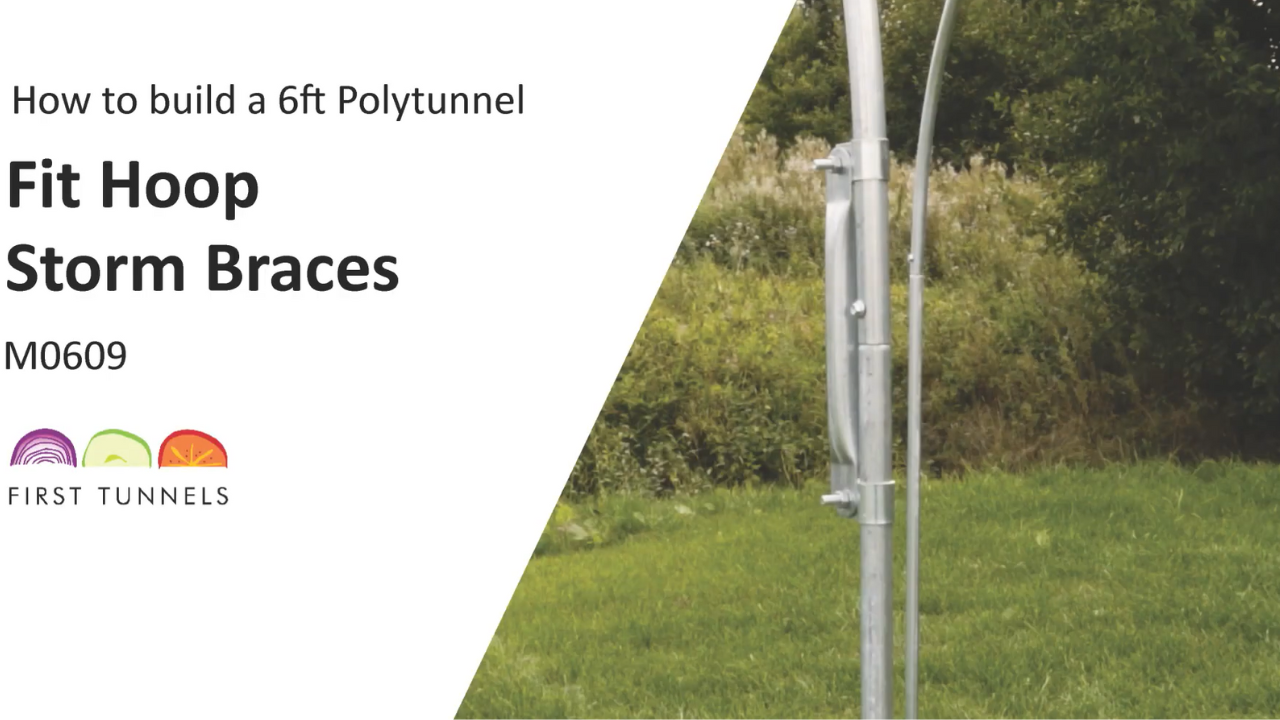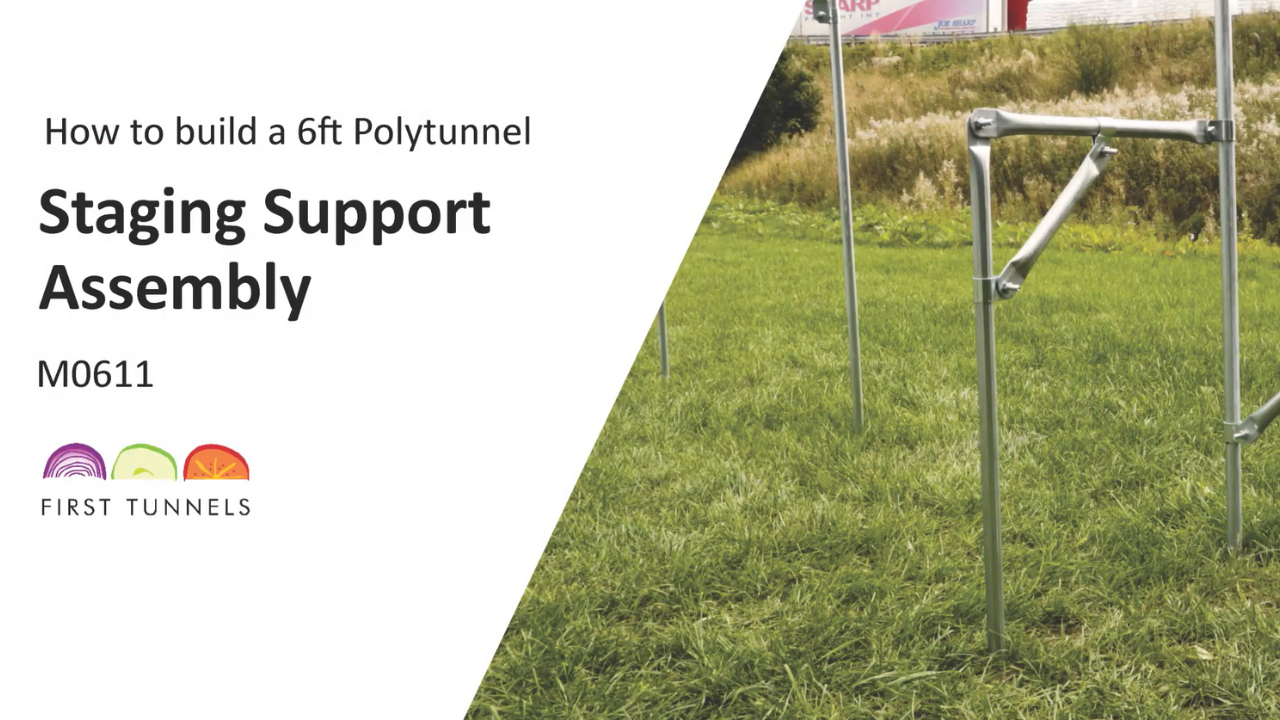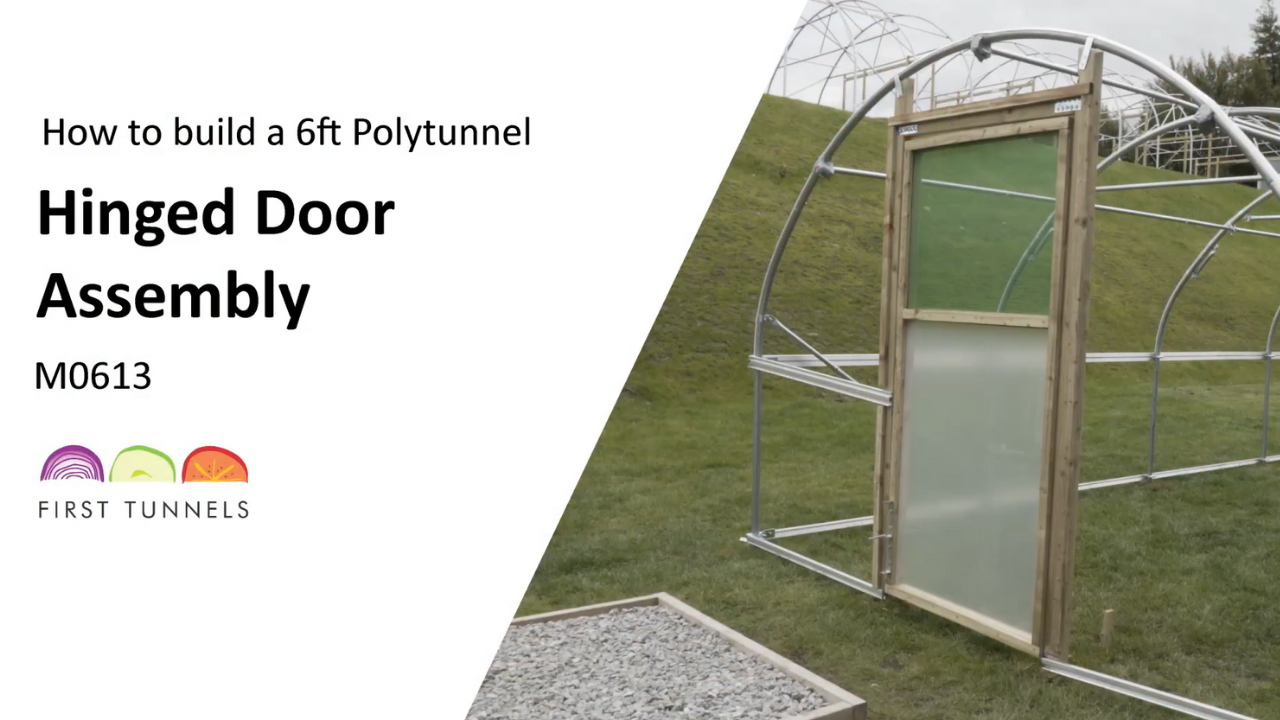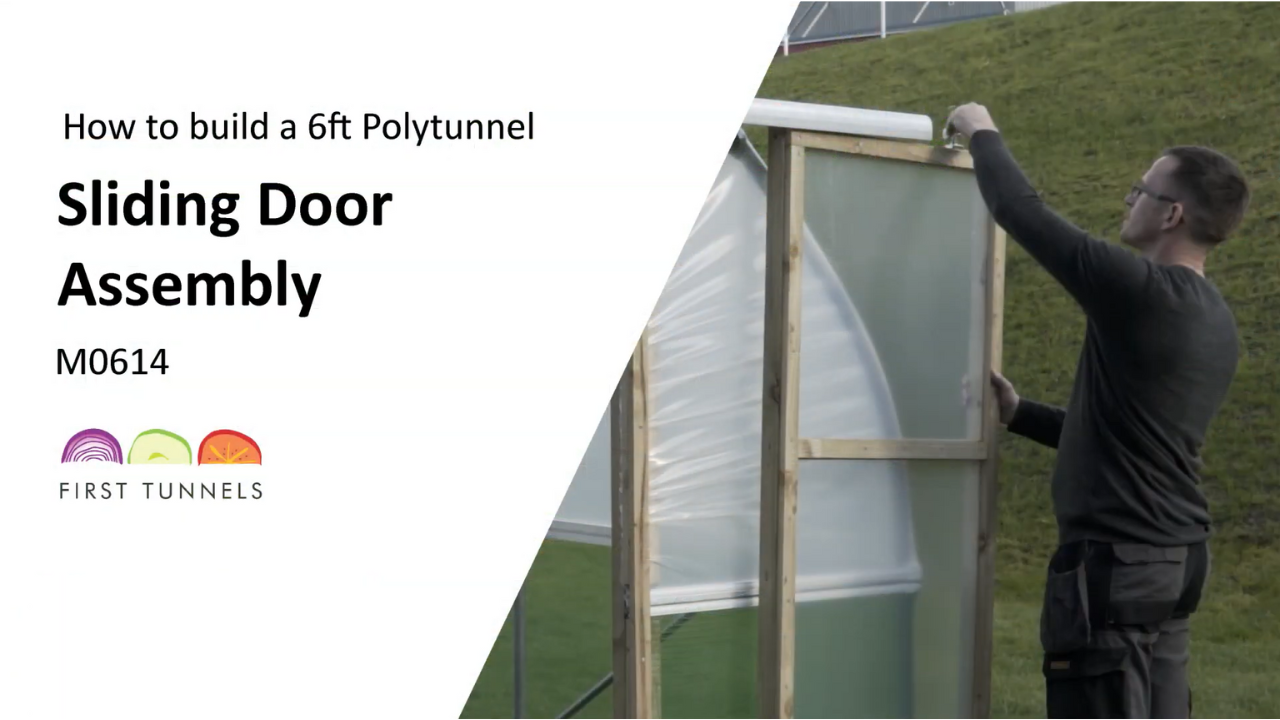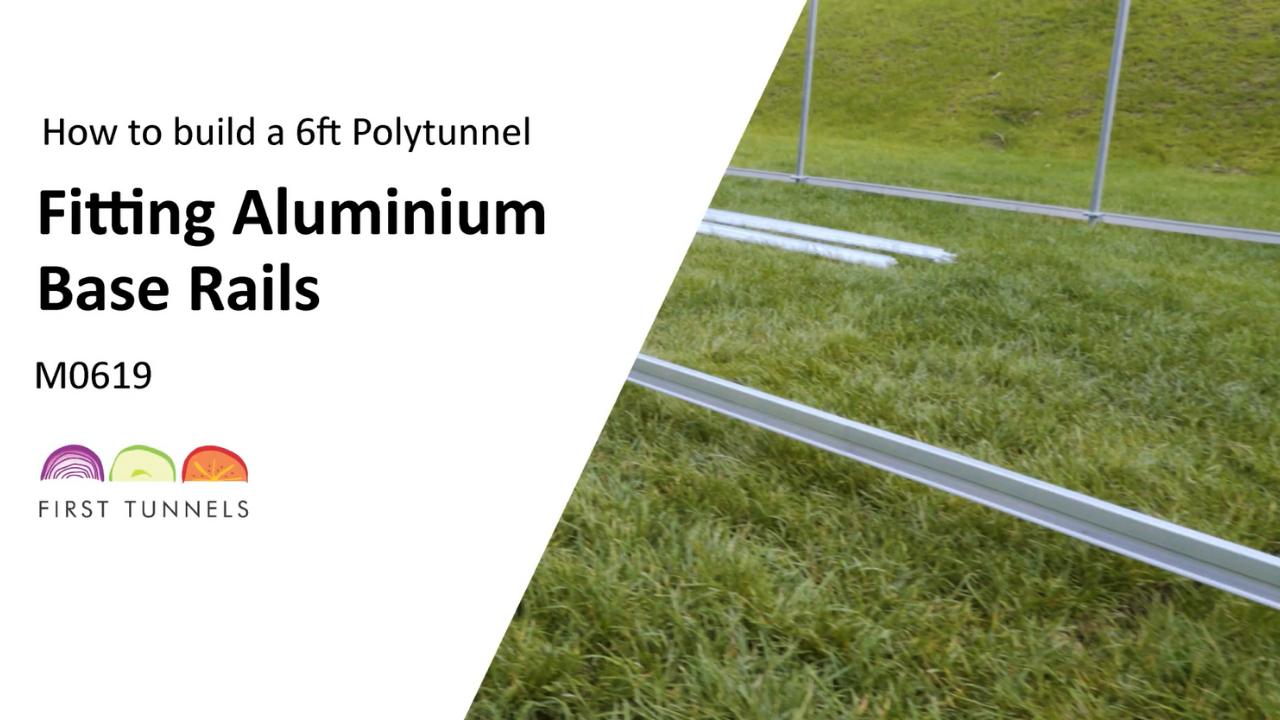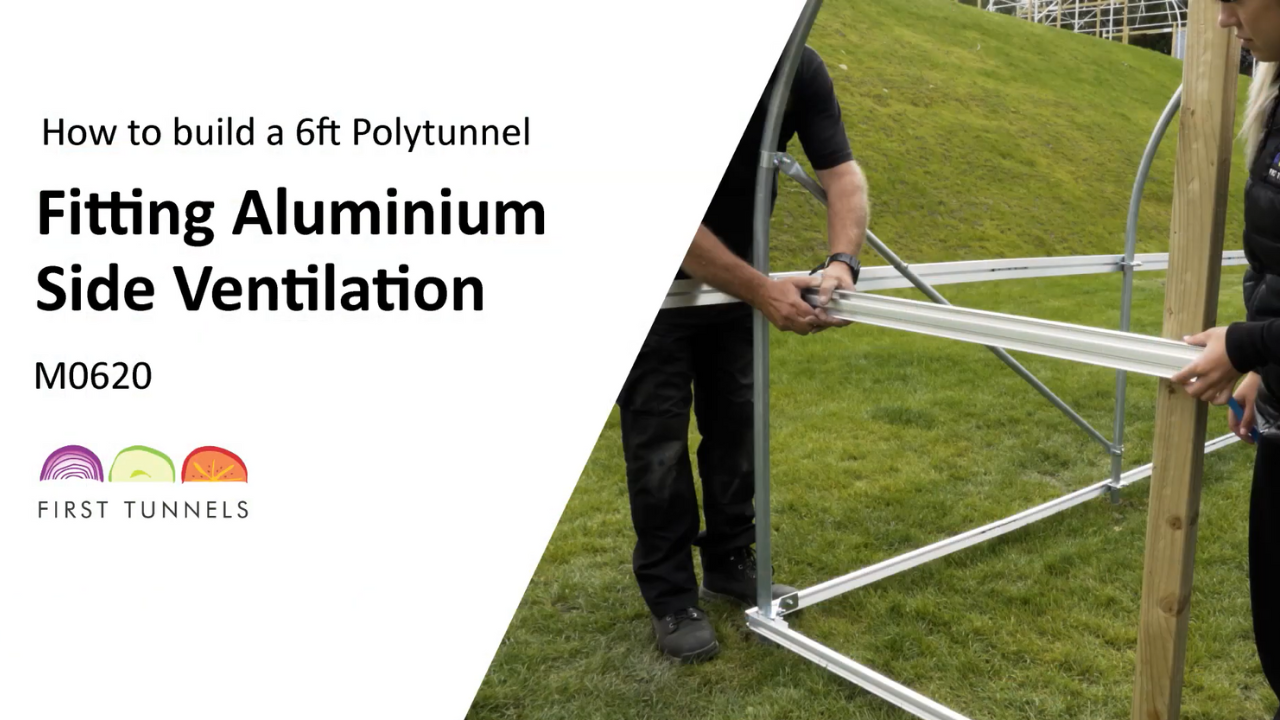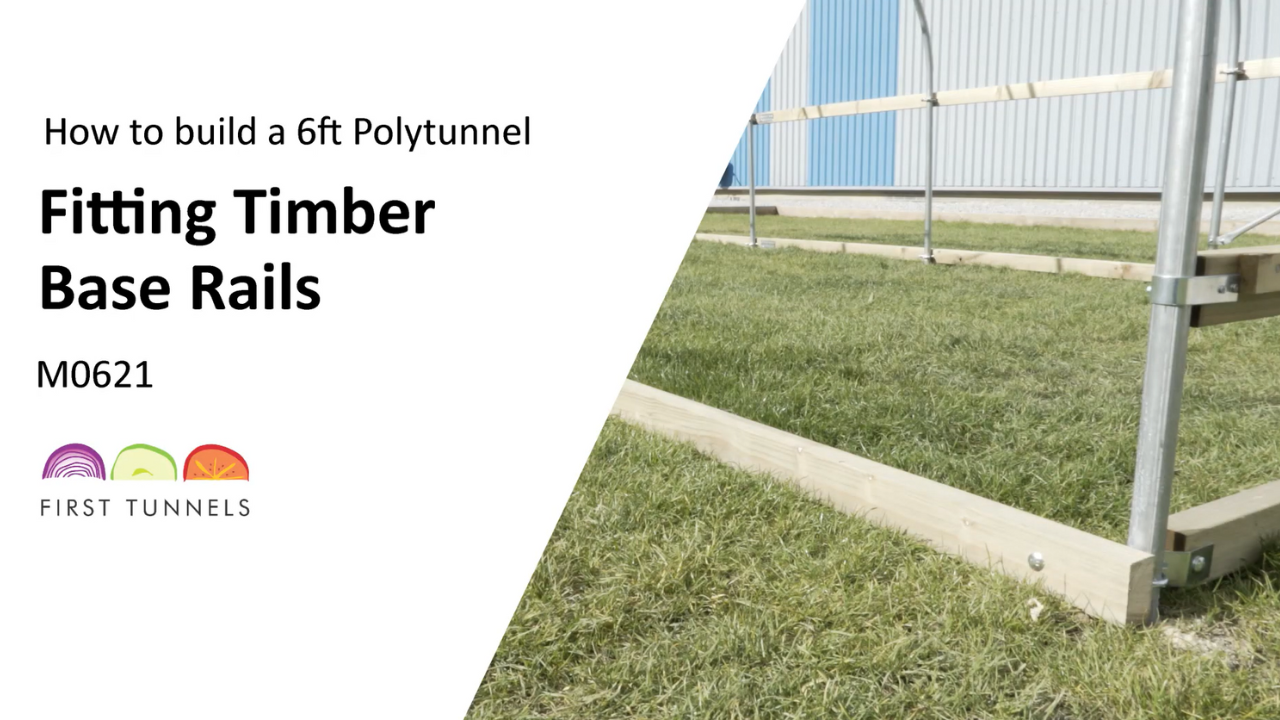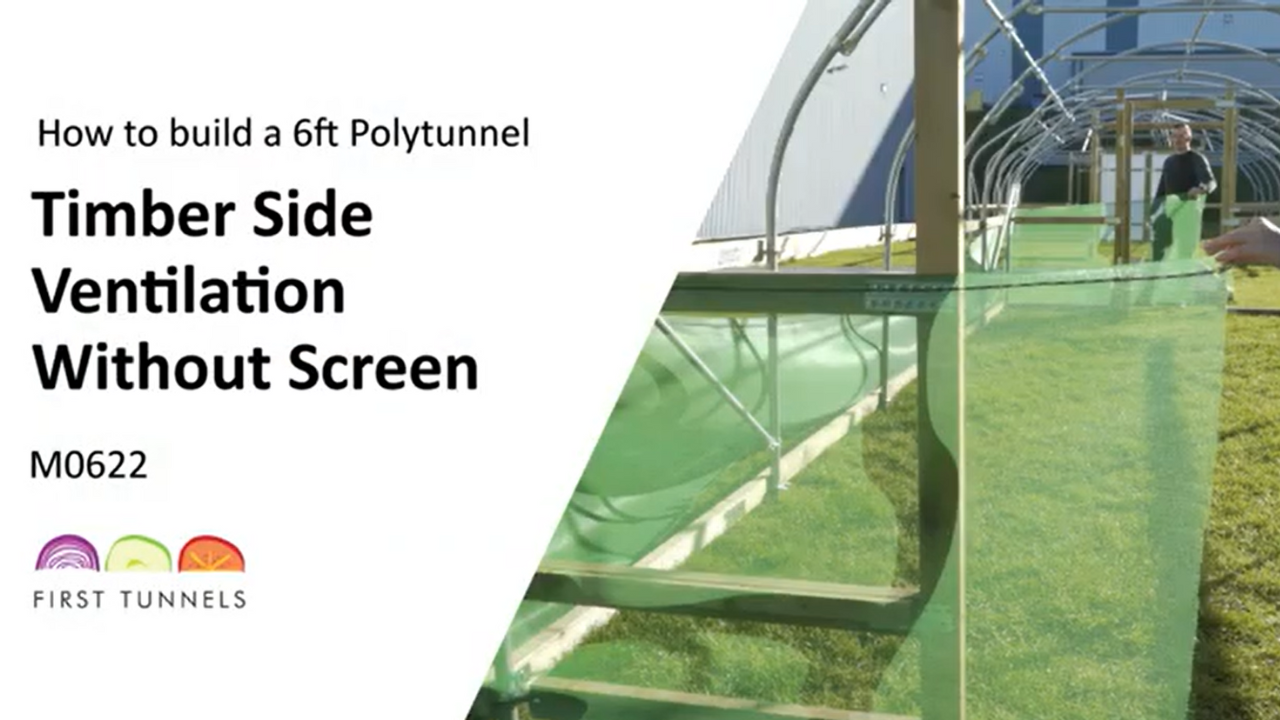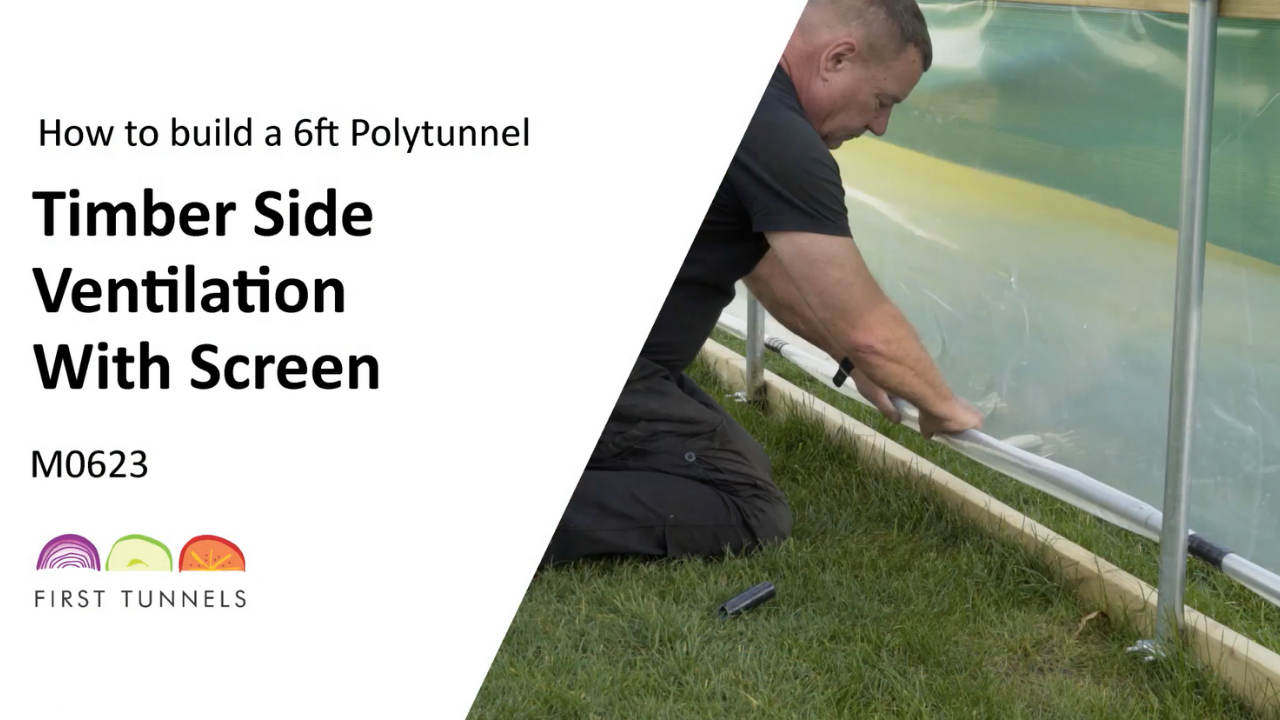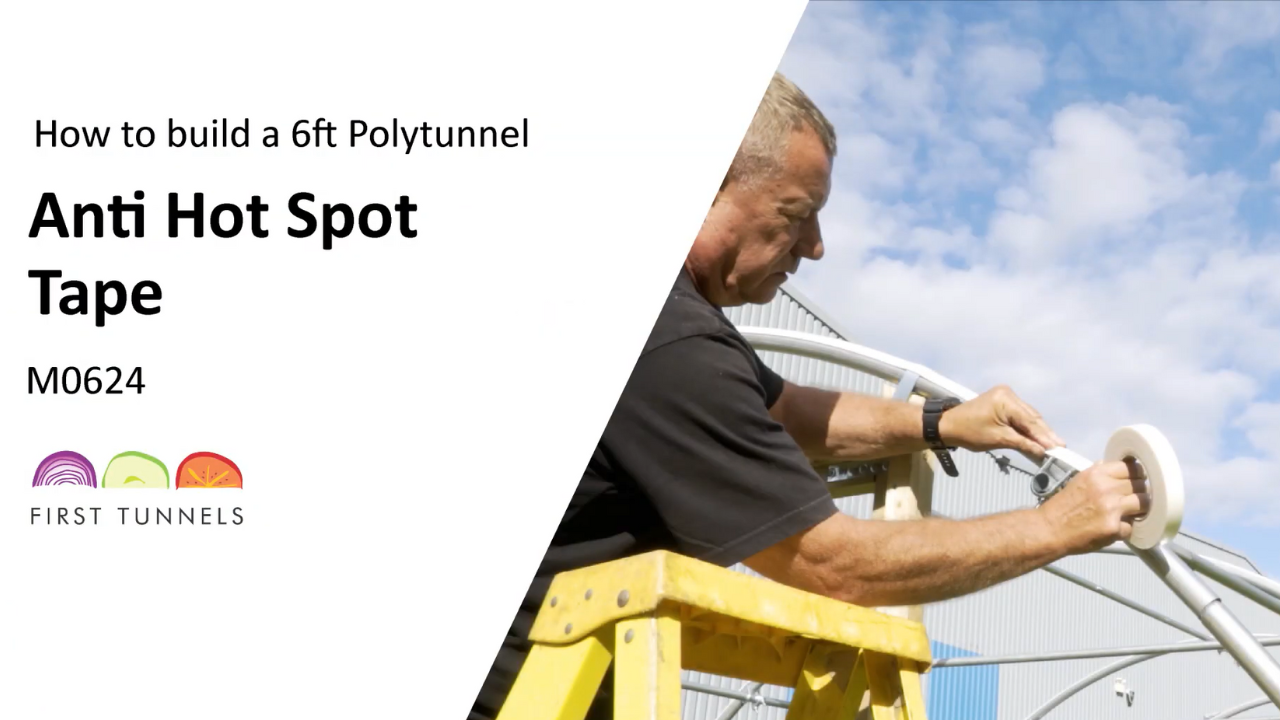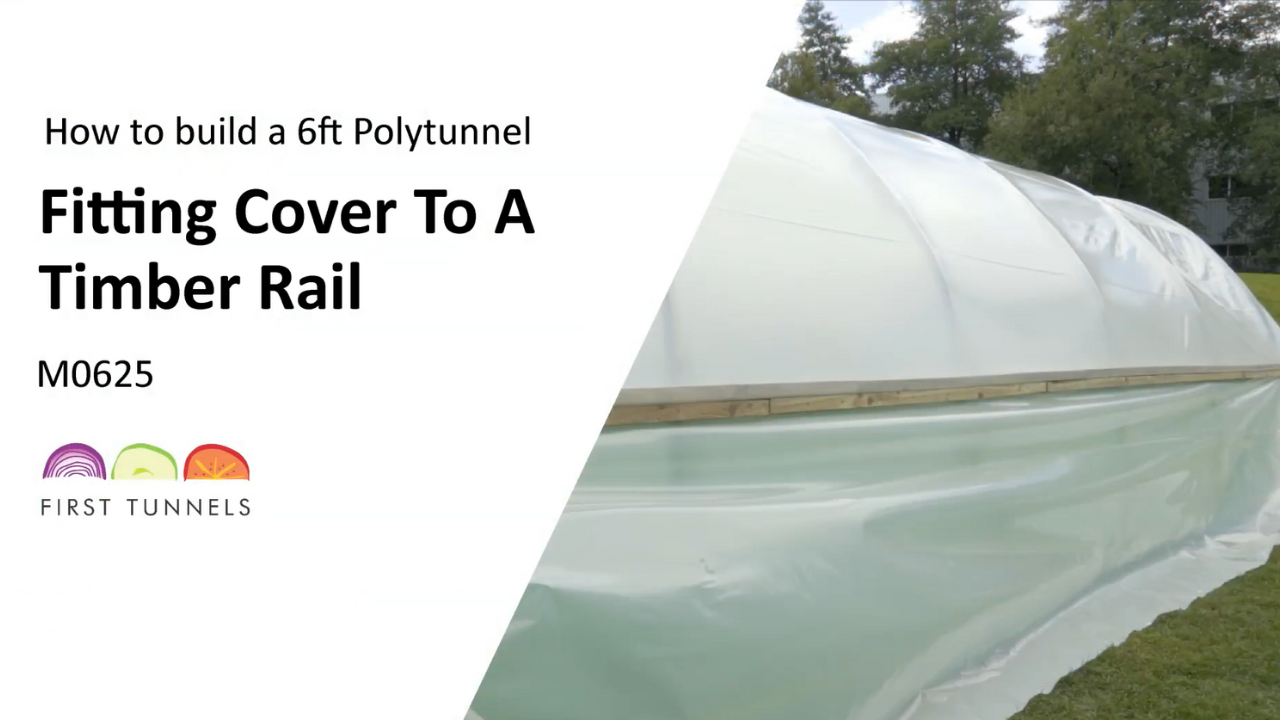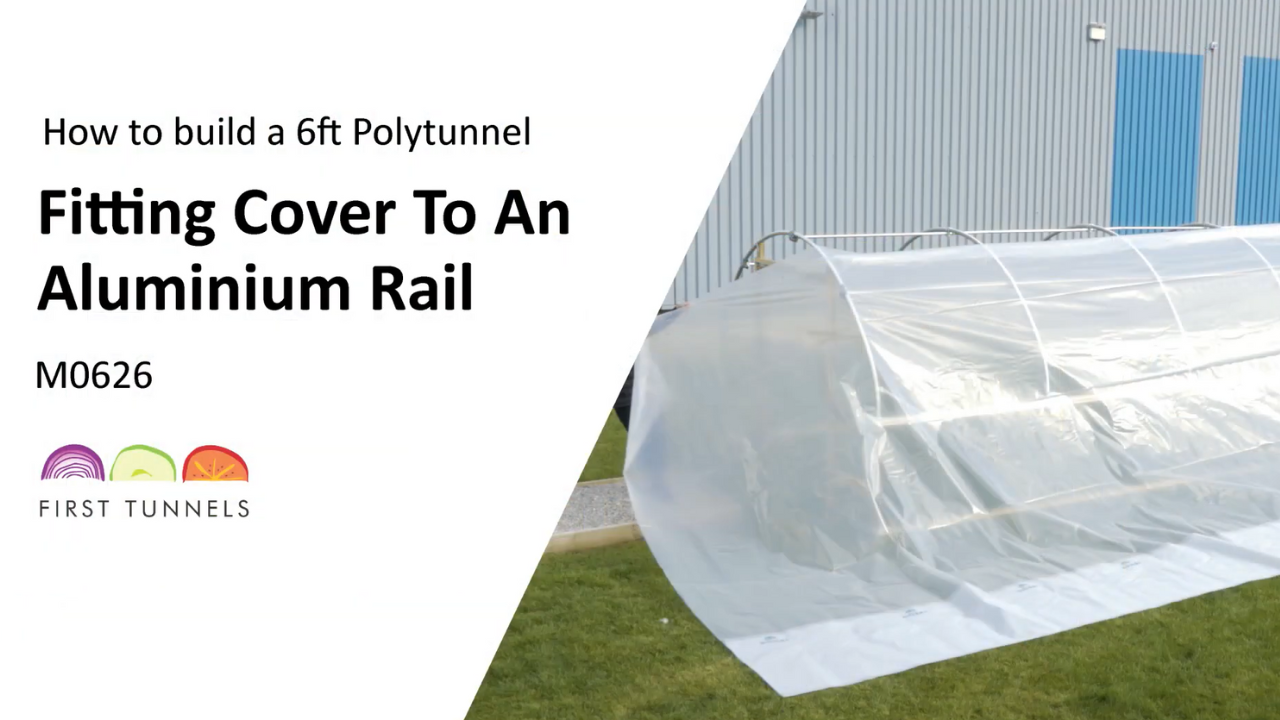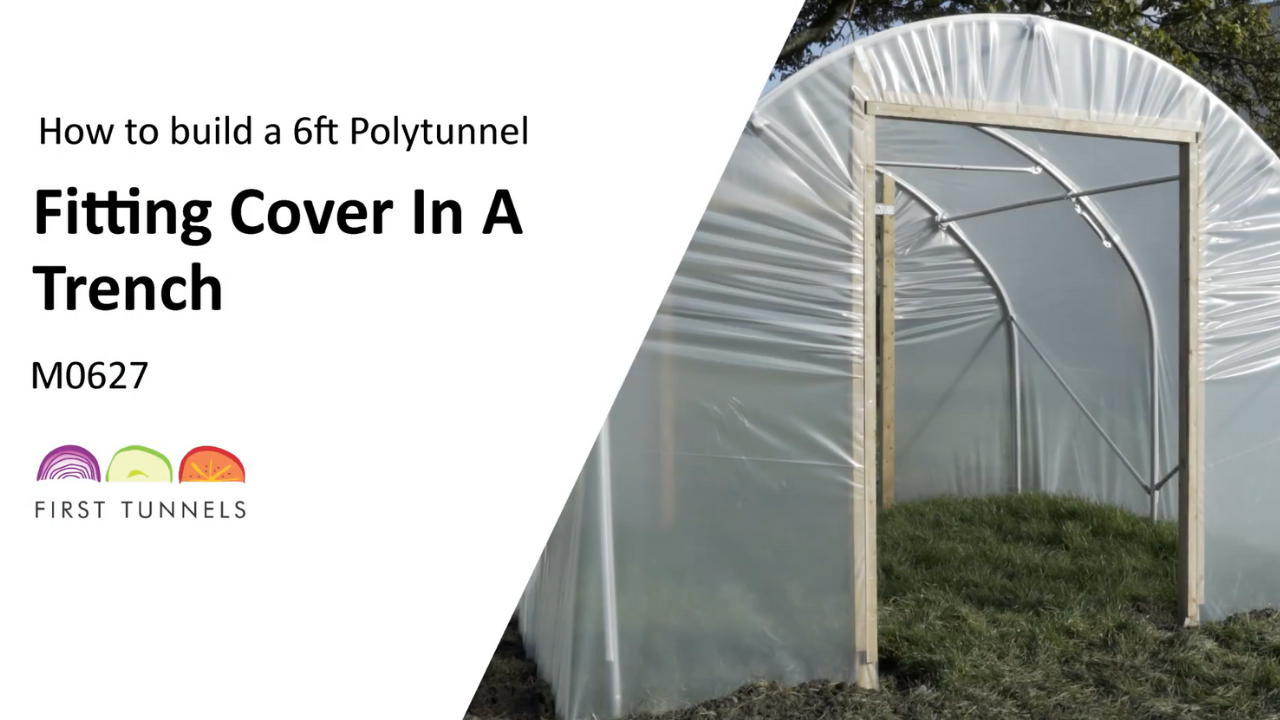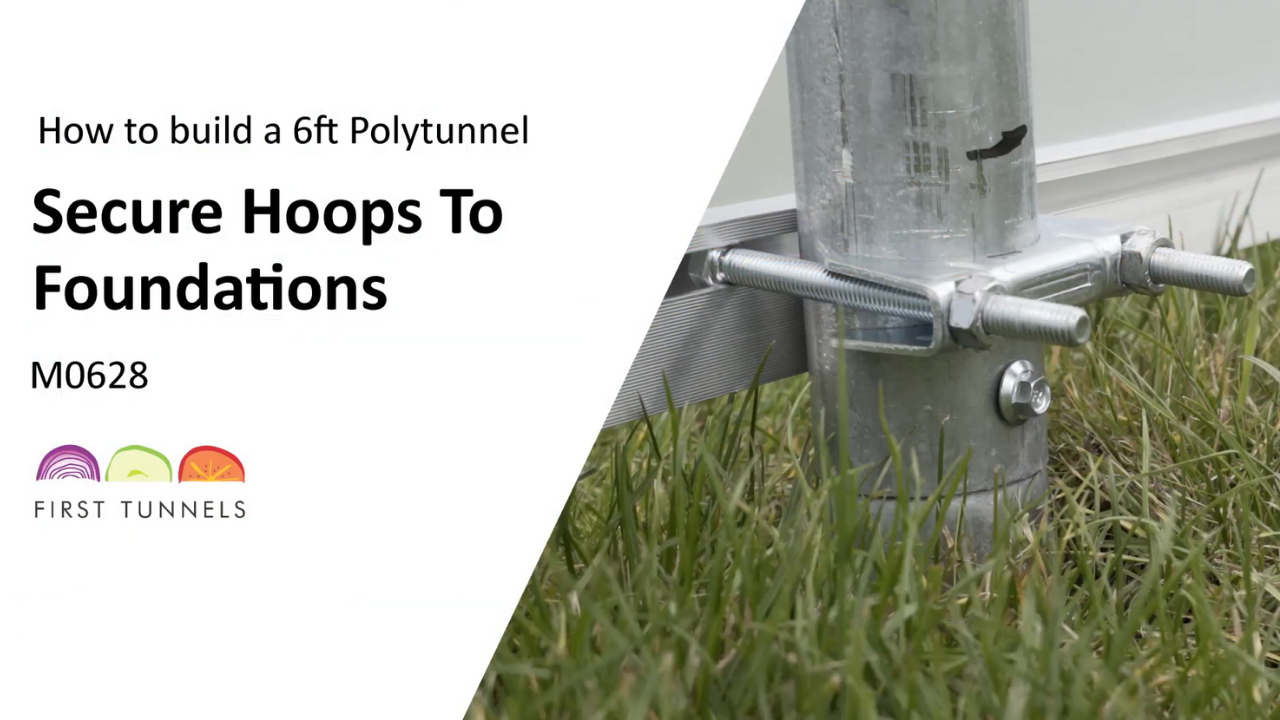Aluminium base rails are supplied in lengths of 93cm and 1.3m. They consist of 4 corner rails 93cm long (SABR0928).The corner rails fix from the door post to the corner hoop and onto the two side rails (which are supplied in 1.3m lengths) (SABR1300). The aluminium base rails fix along the length of the polytunnel, on the outside of the framework with the tee slot placed towards the top, internally facing and the cover fixing channel, towards the bottom. It is attached to the framework using intermediate clamps and corner clamps.
Fit a 93cm length of base rail from the door post to the corner hoop (SABR0930). If your Polytunnel has a slope, across the width, then we suggest fitting the rail on the side that is highest first (fig 13a). Your foundations will have been positioned at a consistent height and consequently the swage joint can act as an indicator for the position of the rail. Set the base of the rail in line with the joint on the foundation (fig 13b).
Fit a corner clamp (CCA25) to the corner hoop. To assemble, place the U bolt around the corner hoop with the threads pointing to the inside of the polytunnel. Place the tube pressing and then corner clamp onto the threads, ensuring the corner clamp wings run parallel with the width and length of the polytunnel and loosely secure in place (fig 13c). Position the aluminium base rail on the front face of the door post with the bottom of the rail also inline with the joint on the corner hoop. Ensure the rail is level using a spirit level.
Mark the door post in line with the T slot and in the centre of the door post. Use a 9mm wood drill bit to drill a hole through the door post. Slide a 90mm M8 bolt into the T slot and then through the pre-drilled hole (fig 13d). Fix in place using a nut and washer ensuring the end of the base rail is flush with the inner edge of the door post (fig 13e). To fix the base rail to the corner clamp slide a 16mm M8 bolt in the tee slot of the rail and through the corner clamp and loosely secure in place. While using the level, move the corner clamp up or down to make it level and then tighten the nuts on the corner clamp. Tighten the bolt that secures the base rail to the corner clamp. We will now fit the aluminium base rail down the length of your polytunnel. Set your base rail at ground level, in a consistent line, do not follow the undulations of the ground. Setting the bottom of the aluminium in line with the swaged joint will achieve this. Starting with the 61cm length, slide a 16mm M8 bolt down the T slot and locate the bolt through the corner clamp. Butt the base rail up to the corner base rail and tighten the nut.
You will now start to use the 1.3m lengths of base rail. Join this length to the previously fitted length using a rail joiner (SAJ1). Slide half of the rail joiner into one piece of the base rail and tighten the screws using the Allen key provided (fig 13f). Then slide the second piece of base rail onto the rail joiner and tighten the screws. To secure the base rail to the intermediate hoop slide two hexagon bolts from the intermediate clamps (ICT25) down the T slot of the base rail. Position them at either side of the hoop, place the curved pressing over the bolts and tighten (fig 13g). Repeat this procedure until you reach the end of your polytunnel. The final piece will exceed the length of your polytunnel and we will trim this off at the end. Measure and cut a piece of aluminium base rail to fit between the corner hoop and the inner edge of the door post on the opposite end of the polytunnel and fit using the same method as earlier.
Where the base rails exceed the width and length of your polytunnel cut off the excess with a hack saw. The sawn edges will be sharp. It is important that these are filed smooth before the cover is fitted for safety and so that don’t damage the polythene cover. Fit the base rail on the opposite side, if your ground is not on a slope then repeat the procedure you followed for the first half. If you have a slope, across the width, fitting the rail on this joint will create an unnecessary gap, we advise setting the base rail at a height that eliminates the gap as much as possible but still ensuring that the rail from the door post to the corner hoop is level (fig 13h). Ensure that the rail is set at a consistent height. A string line will be handy here.

